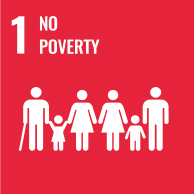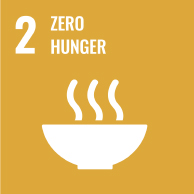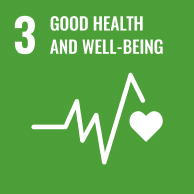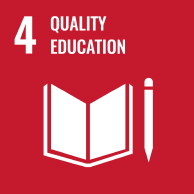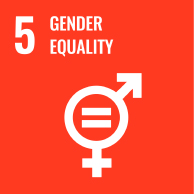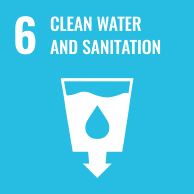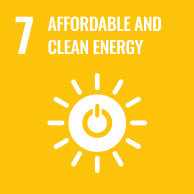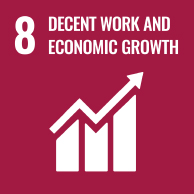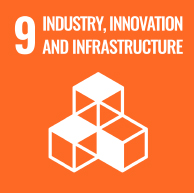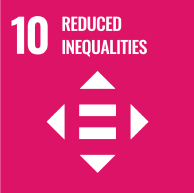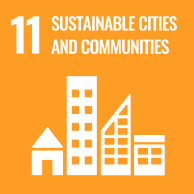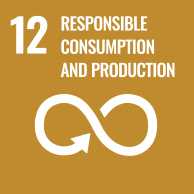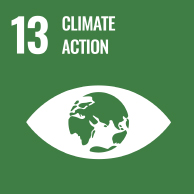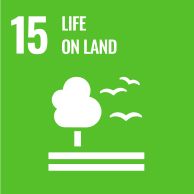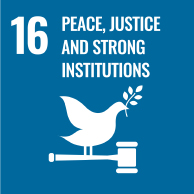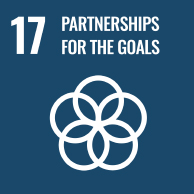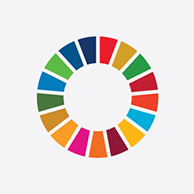Greetings from BSG Chairperson
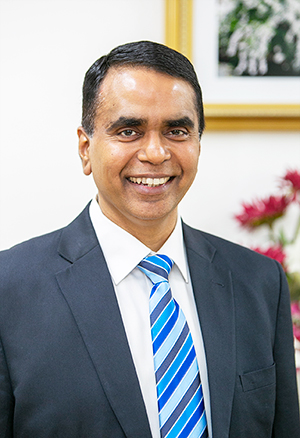
Dear Members of Bharat Soka Gakkai and All Readers,
I would like to extend my heartfelt gratitude to each one of you for your most encouraging response & feedback for the first issue of the ‘Sustainable’ Newsletter. Many members and people from different walks of society have shared how elated and empowered they have felt going through the newsletter, and how they have shared the newsletter further with many of their friends and family members as well. It is indeed with this intent that we had launched the newsletter – so that sustainability becomes a byword amongst all people of society, and so that the newsletter is able to provide a way forward on how we can all lead sustainable lives! I am very glad to see that the newsletter has received such an encouraging response.
The second issue of ‘Sustainable’ is focusing primarily on SDG13 – Climate Action. This is in line with the 2021 United Nations Climate Change Conference (also known as COP26) that is scheduled to be held in Glasgow for a period of 2 weeks (from 31 Oct, 2021 to 12 Nov, 2021). It is being described as the most important meeting on the climate change crisis for the world to step up and make bold commitments for the sake of our future.
SGI President Daisaku Ikeda has defined climate change as “…a fundamental challenge on which the fate of humanity hinges” (2020 Peace Proposal).
SDG13 on Climate Action calls for urgent action to combat climate change and its impacts. Through this second issue of ‘Sustainable’, we will learn more about the climate crisis, reflect on the need for climate action, and empower each other to take concrete action. Powerful testimonials of BSG members towards climate change included in this newsletter will hopefully empower us.
I hope that you will find the contents of this newsletter fulfilling and value creating, and that this newsletter will help in transforming pessimism of the times into a hope-filled determination for the future.
Let’s all adapt to sustainable human behaviour in our daily life and collectively achieve the SDGs towards 2030. We have only one Earth. Let’s act now to save our precious blue planet from the perils of climate change.
My heartfelt wishes to all of you for your continued efforts to make our world more ‘Sustainable’.
Warmest regards and festive greetings to you and your families
Vishesh Gupta
BSG Chairperson
Climate change is a challenge that transcends borders. Ultimately no one will be left behind from its negative impacts – be it extreme heat, excessive precipitation and flooding, droughts, intensity and frequency of cyclones and wildfires, reductions in snow cover and permafrost, or sea level rise. SGI President Daisaku Ikeda highlights in his 2020 Peace Proposal: “Climate change is more than an environmental issue in the conventionally understood sense: It represents a threat to all people living on Earth, both now and in future generations.”
In December 2015, 196 nations adopted the historic Paris Agreement, which came into force in November 2016. This was a landmark milestone because for the first time the world agreed to a legally binding agreement around the common cause of taking bold actions to combat climate change and adapt to its negative impacts. The Paris Agreement’s goal is to limit global warming to well below 2°C, preferably to 1.5°C, compared to pre-industrial levels. However, a recent report indicates that we are simply not acting fast enough. The report highlights, “Global warming of 1.5°C and 2°C will be exceeded during the 21st century unless deep reductions in carbon dioxide (CO2) and other greenhouse gas emissions occur in the coming decades.” The UN Secretary-General António Guterres has said this report is nothing less than “a code red for humanity. The alarm bells are deafening, and the evidence is irrefutable”.
Many scientists, academics, and organisations now use the term ‘climate emergency’ instead of ‘climate change’ to emphasise on the gravity of the challenge that confronts us. An emergency is a serious situation that requires immediate action. Oxford Dictionary chose climate emergency as the word of the year 2019 and defines the term as “a situation in which urgent action is required to reduce or halt climate change and avoid potentially irreversible environmental damage resulting from it.”
The world will see serious climate impacts at 1.5°C, and beyond that the situation gets much worse. The difference between 1.5°C and 2°C is:
- The difference between 70% or 99% of coral reefs dying.
- Double the likelihood that insects, vital pollinators, lose half their habitat.
- Ice-less summers in The Arctic Ocean once per century or once per decade.
- 1 meter added in sea-level rise.
- 6 million or 16 million affected by sea-level rise in coastal areas by the end of this century.
(Source: https://www.unep.org/explore-topics/climate-action/facts-about-climate-emergency )

Carbon Footprint
Carbon footprint is the amount of greenhouse gases (GHGs) such as carbon dioxide, methane, and nitrous oxide that we emit through our daily activities and lifestyle choices such as food habits, lifestyle, air travel frequency, chosen transport for commute, use of gadgets and energy appliances. These GHGs have varying ability to trap sun’s heat inside the planet, causing global warming which, consequently, leads to a complex chain of natural occurrences such as warming up of ocean surface, leading to hurricanes, floods, freak weather phenomenon, bleaching of coral reef, melting of polar ice caps, among others events.
Carbon footprint is usually measured in equivalents of tonnes of carbon dioxide over a period of one year. Carbon footprints can be calculated at an individual or at an organizational level by adding up the GHG emissions resulting from every stage of a product or service’s lifetime (University of Michigan Factsheet). The carbon footprint of a person biking to work is less than someone who carpools to work, which is less than someone who drives solo to work.
Humanity’s carbon footprint has increased 11-fold since 1961 (Global Footprint Network). The global average carbon footprint per person is 4 tonnes. In order to avoid the catastrophic 2 degrees increase in the global temperature, the global average carbon footprint needs to be under 2 tonnes.
Calculate your own carbon footprint by exploring the UN carbon footprint calculator here.
To Read
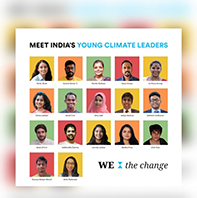
“We the Change Campaign”:
17 young climate leaders have recently been selected to lead the United Nations ‘We the Change’ Campaign in India. Read more about how young people are working on the Sustainable Development Goals (SDGs) and climate solutions.
To See
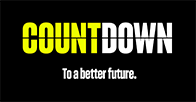
“Enduring and Surviving the Climate Crisis – In Pictures”:
Climate Visuals Countdown is a photography initiative created by TED Countdown and Climate Visuals to promote 100 powerful photographs that depict the global impact of the climate crisis by both professional and amateur photographers. These images will be featured at the UN Climate Conference COP26 in Glasgow.

“Don’t Choose Extinction”:
A dinosaur bursts into the iconic General Assembly Hall at the United Nations Headquarters in New York, with a special warning for anyone who still thinks climate action is for the birds.
To Listen
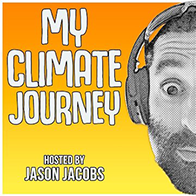
My Climate Journey:
A podcast of those seeking to better understand climate change and how to help in the form of interviews and stories from experts and leaders from across the world tackling climate change in innovative ways.
Climate change, or as we have learnt, ‘climate emergency’ is an urgent crisis impacting all, and hence calls for “unseen solidarity and action” in terms of response. SGI President Daisaku Ikeda highlights 3 key commitments that would be essential to forge such solidarity in his 2020 Peace Proposal.
1. Leave No One Behind: President Ikeda says, “When discussing the impacts of climate change, there is a tendency to focus on the scale of economic loss and other quantifiable indicators. But I think it is important that we attend to the suffering of the many individuals that these macroeconomic indices might obscure, and make this central to our efforts to come together in search of solutions.”
While climate change will impact all of us, there are certain sections of society that will be most vulnerable to its immediate impacts and stand to lose their homes and livelihoods, such as fishing communities in coastal areas where sea levels are already beginning to rise or smallholder farmers exposed to floods or droughts. When reflecting on how to respond to the climate crisis, President Ikeda urges us “never to abandon those who find themselves in dire circumstances.” (ibid.) Let’s consciously think of solutions on climate action that benefit humanity as a whole, leaving no-one behind.
2. The Challenge of Construction: President Ikeda highlights that in the context of climate change, we can avoid “falling prey to either an egocentric indifference to problems that don’t directly affect us or a pessimistic paralysis in the face of problems that seem too overwhelming” (ibid.) by taking the third path forward, and that is to engage in the challenge of construction. The crisis of climate change can be turned into an opportunity, if instead of succumbing to the current reality that can make the chances of transformation hopeless, we are able to create a clear vision for the future and work towards it in solidarity. For instance, can we envision our cities safe for commuting in bicycles or a world where burning of fossil fuels has stopped and renewable energy has become the norm? The time for action to engage in the challenge of construction is nowhere in the future but in the now, and every small action to reduce our carbon footprint counts, because when such actions are repeated several times by several people, they can indeed make a difference.
3. Youth-Led Climate Action: President Ikeda highlights that when the outrage that young people feel towards insufficient action on the climate crisis is married with the indomitable optimism of youth, it can unleash powerful possibilities to transform the reality. President Ikeda urges everyone to listen to the concerns and views of the youth about the future of our world, and also calls upon youth to stand up as the climate change-makers to transform the current of the times. He says, “The path of resolving the problem of climate change will not be smooth or easy. However, I am deeply confident that as long as there is solidarity among youth, there is no impasse we cannot surmount.” (ibid.) Human beings are responsible for the crisis of climate change, and the solutions to address this challenge also lie within us. The climate is changing, and so should we! Let’s act now!
Let’s understand a little more about how we as ordinary individuals can support our environment and prevent climate change. The following are excerpts from a dialogue between Youth members of Soka Gakkai and SGI President Daisaku Ikeda:
Youth: We are facing an environmental crisis on a global level, and it is a fundamental problem that concerns all humanity.
President Ikeda: Yes, it is. Buddhism explains life in a system of 10 stages, or states of being. (They are the states of Hell, Hunger, Animality, Anger, Humanity, Rapture, Learning, Realisation, Bodhisattva and Buddhahood.) The state of Humanity is right in the middle, with nobler states of life above and uglier states below. Those states below are unnatural states of being, states of being that oppose nature. The four stages above Humanity all value nature and strive to create a paradise where its beauty flourishes in abundance.
The question is, will we allow ourselves to be dragged down to the lower states, or will we advance into the higher states of life? Only intelligence, culture and religious faith can lead us out of the state of Animality that consumes nature thoughtlessly, leaving a barren wasteland. Because of the oneness of life and its environment, a barren, destructive mind produces a barren and devastated natural environment. The desertification of our planet is linked to the desertification of the human spirit.
Youth: Environmental destruction is going on in our immediate surroundings as well. Where I live, the green hills and empty lots are all being “developed” into apartments and other buildings. There is no place you can even walk your dog without a leash, and it feels extremely cramped and binding. Is it alright to destroy nature in the name of development?
President Ikeda: The destruction of nature is the destruction of humanity. Nature is our home. All life on this planet, including human life, was born from the natural environment. We don’t owe our existence to machines or to science. We are the products of nature. Life on this planet was not artificially created… the farther we alienate ourselves from nature, the more unbalanced we become. Our future as a species will be grim unless we recognise this fact. The 18th century French philosopher Jean-Jacques Rousseau (1712-78) called for a return to nature. Civilisation even in his time had become too mechanical, too reliant on science, gave too much priority to profit, distorting human life into an ugly thing. It was this unfortunate development that Rousseau protested. Second Soka Gakkai president Josei Toda used to tell young people to walk barefoot and plant trees. He was trying to teach them to make sure their lives were rooted in the natural world. Indeed, we all want to be healthy. For that reason, we want to breathe clean air, to see beautiful flowers and greenery. We turn to nature for this, just as a sunflower turns its face to the sun. We must recognise that any action that transgresses or negates this inclination is a terrible mistake. All the money in the world won’t buy the blue sky; the sun and the breeze belong to everyone. Human beings have the ability to either destroy nature or live in harmony with it. We must never forget that we are a part of nature.
Youth: It is certainly true that our lives today are far more convenient than they once were. We can buy almost everything we need. We can get something to eat anytime we like, day or night. We have access to such a variety of goods that our biggest problem is choosing what we want. But we seem to be destroying the environment and ourselves for the sake of that convenience… It seems to me that something is fundamentally wrong with the path the human race has taken.
President Ikeda: No one is denying that science has improved our lives. Thanks to science we can use electricity instead of relying on just oil lamps and candles. But what we need to do is match the progress of science with progress in our commitment to preserving and protecting our environment. We need to find a balance.
Youth: It’s important to have a philosophy that recognises that everything in the universe is living and sacred.
President Ikeda: We are dependent on the Earth, not the other way around. In our arrogance, we have flagrantly overlooked this fact… The essential teaching of Buddhism is that the life of the Buddha resides in every plant and tree, even in the smallest mote of dust… Science ought to be committed to the welfare of humanity based on induction, reasoning derived from the concrete facts of life. Everything must begin from such purpose.
The Gaia hypothesis, that the Earth itself is a living thing, is well known. Dr James Lovelock, who first formulated this idea, wrote: “Strangely, the view [Gaia theory] is not inconsistent with the human values of kindness and compassion.” (James Lovelock, The Ages of Gaia: A Biography of Our Living Earth (New York and London: W. W. Norton & Company, 1988), 236)
Youth: I think that if one were to possess such kindness, one would find it impossible to litter.
President Ikeda: Only someone who lives in the selfish state of Animality could throw trash or aluminium cans by the road. This is an egoism that cares nothing for others; it is an unnatural way to live. A person who loves nature is simply unable to litter. Tossing one’s trash away carelessly is to toss away one’s humanity.
By the same token, one who loves nature is able to cherish other human beings, values peace and possesses a richness of character unfettered by selfish calculations of personal gain and loss. Those who live in a calculating way, on the other hand, will end up calculating their own worth in the same manner. Such a life is extremely limited. Nature, however, is infinite. Though it may seem beneficial to keep track of personal gain and loss, from nature’s broader viewpoint, this is actually a poor and miserable existence. From that perspective, such people only hurt themselves.
Youth: I think that because technology has advanced to the extent it has, it’s more important now than ever for each person to develop an awareness of environmental protection.
President Ikeda: As science advances, it is only natural that we should become involved in many different endeavours to preserve the environment. Each of us, as individuals, must make an effort — not to be selfish, and to save energy, for example. We must work to take better care of our environment. Any apparent material improvements in our life are no more than an illusion unless we enhance the fundamental quality of our life.
Turning Waste into Black GoldSmita Andhare | Women’s Division | Baroda
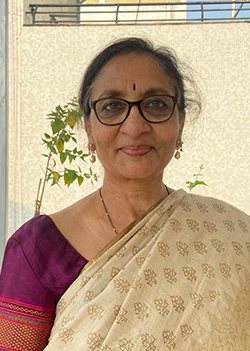
In October 2020, I joined a group of volunteers of young students and professionals taking action towards climate change through composting kitchen waste. Within a week, I was able to collect 150kg of waste to be turned into compost. Soon, my neighbor joined me in this initiative and we started collecting waste at his composting pit. We learned about community composting, and started holding awareness building workshops and meetups on ‘waste to value’. By January 2021, we were able to start donating ready compost to the households who had given us their kitchen waste.
Soon as a group of volunteers, we joined an initiative called the ‘Gigatonne Challenge’ and encouraged housing societies to reduce greenhouse gas emissions by composting their wet (kitchen and garden) waste, while also providing employment and financial support to various stakeholders, such as gardeners maintaining the composting pit, watchmen taking care of the composting site, and tempo drivers and cycle rickshaw riders supporting in transportation of waste and compost. We were able to convince three housing societies to join this challenge, and were able to collect 2500kg of wet waste and turn it into around 200kg of compost! Subsequently, in the months of May to July, we recorded the highest daily collection of wet waste, and collected up to 1000kg within just three months.
Many people have come forward to support the cause – senior citizens, a vegetable vendor, a lower income group community including women volunteers – all of whom have volunteered to segregate wet waste from dry waste in their community, and compost it in a designated spot. We even approached restaurants to collect their food waste. Currently, we are working towards getting the municipal corporation’s permission to set up a composting unit in different neighbourhoods, and setting up a community vegetable garden. I am determined to live a contributive life and encourage many more women in my community to join hands with the youth in this effort of making composting a norm.
Taking Lead in This Crucial ‘Decade of Action’Bhuvan Ravindran | Young Men’s Division | Noida

My journey towards protecting our planet began in 2010, when I returned from Jim Corbett National Park without seeing a tiger. I began reading about various environmental challenges, and decided to create a society where all life can prosper harmoniously with dignity. While working as a lawyer, I never gave up on my dream to work in the field of climate change. During the lockdown, I struggled with the idea of transitioning to the social/policy sector, as that would mean giving up my legal practice and taking a pay cut, which worried my family. For clarity and courage, I studied SGI President Daisaku Ikeda’s writings and realised that in this “Decade of Action” towards 2030, it is youth who must take the lead in igniting a powerful change in the destiny of all humankind and shine as a reliable light of hope for the world.
With a renewed sense of purpose in my job search, I was eventually able to secure a job with one of the world’s leading think tanks in the area of climate change and sustainability. I also joined at a better package than my previous job! Currently I am working to formulate inputs for the Government of India’s delegation at COP26 in Glasgow, a critical climate conference that will determine the course of humanity towards 2030 and beyond. I am also working on improving the implementation mechanisms of international climate conventions, including the Paris Agreement and the Montreal Protocol, to prevent the catastrophic impacts of global warming on all life. I have recently also been selected to be one of eleven youth across the World to prepare a report that conveys young people’s vision of the 21st century! This vision document will be presented at a high-level international meeting convened by the United Nations General Assembly to be held in Sweden to commemorate fifty years since the 1972 United Nations Conference on the Human Environment.
Science has confirmed that these ten years are our last opportunity to stop climate change, otherwise rising sea levels, extreme weather events and irreversible species extinction will destroy our only home, planet Earth. I am determined to contribute to global governance and advance policies centred at preserving the dignity of life and achieve the Sustainable Development Goals by 2030.
SDG Tip for Daily Life

Not one, but 16 ways to reduce our carbon footprint! If 1 billion individuals take action in our own lives, we could reduce global carbon emissions by as much as 20%.
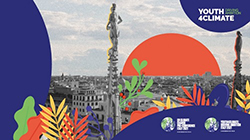
Updates
The government of Italy hosted the ‘Youth4Climate: Driving Ambition’ event in Milan from September 28 to 30, 2021. The event saw participation of 400 youth delegates from across the world who came together to discuss the climate emergency and develop concrete proposals which were presented at Pre-COP and will be shared at COP26 in November.
Hayato Yamashita of the Soka Gakkai Student Division Peace Committee joined the historic conference.
Contact Us
Any queries or suggestions regarding the newsletter can be addressed to sdg@bharatsokagakkai.org
To know more about BSG’s SDG initiative, visit our website: https://www.bharatsokagakkai.org/bsg-for-sdg/







